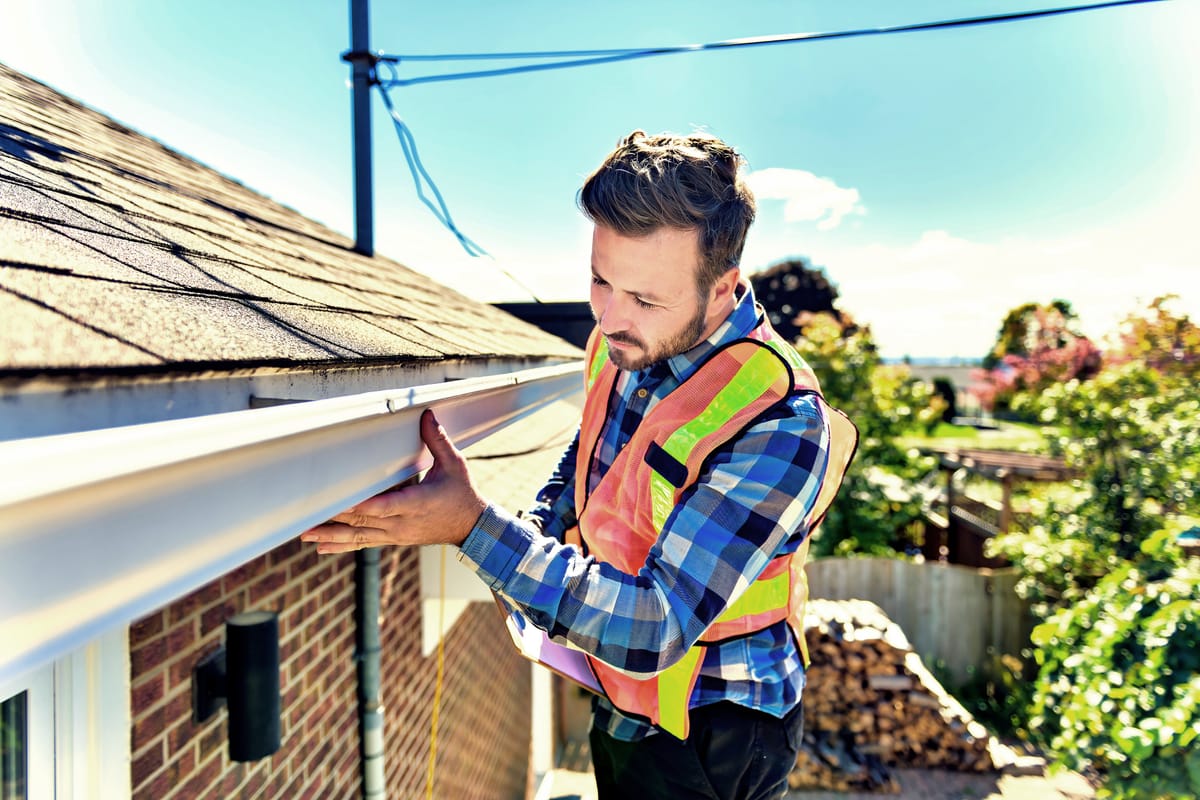Don’t Let Emotions Cloud Your Judgment: How Your Home Inspection Reveals the True Story

Consider this: after countless home visits, you finally find the house that will work for you. It’s got the space you need, sits in a peaceful neighborhood, and even though it’s over your budget because of Canada's housing shortage, it still seems worth it. You’re ready to make it yours. Just one last step remains, and that's the home inspection.
It’s easy to treat this inspection as a formality, a last box to check before the keys are in your hands. But it’s one of the most important steps you’ll take. In the real estate game, your decision to proceed with the sale after your home inspection can make or break you. It’s not just about spotting small flaws; it’s about uncovering hidden issues that could turn into major expenses down the road.
In the excitement of closing, it’s easy for these risks to slip by unnoticed. I'm going to tell you how to avoid common mistakes, and we’ll explore how our emotions can get in the way of sound judgments when it counts the most.
Why a Good Inspector is Essential
Canada’s intense weather and varied climates can be very harsh on homes. This means a home inspection is essential to understanding a property’s condition. A skilled, independent inspector will spot potential issues easily and without bias, giving you a clear sense of the home’s real condition. Think of it as insurance against unexpected repair costs and significant headaches.
Many buyers go with the inspector recommended by their agent—it’s easy, after all. But there can be downsides. Having someone not connected to the deal ensures that the inspection focuses on the home, with no outside influence. Finding an inspector with experience who works only for your interest is worth finding.
Different regions in Canada have different climate conditions. For example, coastal homes face moisture issues, while colder areas might face insulation challenges. A good local inspector will know what to look for and focus on the right things.
The Emotional Trap: Avoiding the “It’ll Be Fine” Mindset
Emotions play a significant role in buying a home. After finally finding a house that feels right, it’s easy to overlook issues or think, “That’s just a small fix.” But these little things can add up fast.
It’s natural to think, “It’s just a small crack in the foundation,” or “That water stain doesn’t look serious.” We all want to believe it’ll work out, especially after a long search. But these tiny details might be signs of something bigger. Brushing them aside can lead to big regrets—and high costs.
Alex’s Story: The Price of Love at First Sight
Alex had been searching for months when he finally found it—a classic Montreal home with all the charm he’d dreamed of. High ceilings, historic details, and a big yard for his kids. The price seemed a little high for the area, but Alex didn’t care; he was in love with the house and determined to make it his.
He hired an inspector recommended by his agent, hoping the report would be a formality. When the inspector mentioned some cracks in the foundation, Alex shrugged it off. “Every old house has cracks,” he thought—a common cliché. Besides, he was worried that asking for repairs could slow down the process or even lose him the house.
After moving in, Alex’s dream home quickly became a nightmare. After settling in his new home in only a few short months, he noticed shifting floors and large amounts of water infiltrating his basement. The cracks turned out to be signs of severe foundation damage, which cost him over $200,000 in repairs. He was demoralized.
If he’d paused and taken his inspector’s advice to bring in a specialist to investigate the cracks further, Alex could have saved himself from the heartbreak and financial strain of losing his dream home.
Alex’s story is just one of many I’ve seen. I have countless client stories of overlooked details leading to massive expenses—all preventable with the right approach.
A Checklist: What a Good Inspector Looks For
A good inspector looks beyond surface-level repairs to give you a real sense of a home’s condition. Here are the big-ticket areas they’ll focus on:
- Foundation: Cracks, soil settlement, or structural stress that might lead to costly repairs.
- Roof and Insulation: Checking insulation and ventilation significantly affects energy costs and the roof’s longevity.
- Water Damage: Spotting signs of past water leaks in the basement, attic, or any other vulnerable areas.
- Electrical and Plumbing: Noting outdated materials or poor installations that could be unsafe.
These are more than just cosmetic concerns—they’re critical for understanding the home’s health. If your inspector finds issues, it's highly recommended that you get a second opinion from a specialist. Spending more now can save a lot of worry and cash later on.
Handling the Pressure and Psychology of Home-Buying
Buying a home is exciting but intense. With so much on the line, it’s easy and normal to feel the pressure to close quickly, especially if you’re worried someone else might snatch up the house from you. Here are some common mental traps:
- Confirmation Bias: When we fall in love with a home, we focus on the positives and overlook flaws.
- Rushing: It’s tempting to speed up the process and miss things in a fast-moving market.
- Downplaying Problems: Sometimes, when we want something, we convince ourselves any issues aren’t a big deal.
If you catch yourself brushing off potential problems, take a step back. This decision is more than just buying a house—it’s about your financial peace of mind. Take your time and keep a level head.
The Extra Step That Can Save You Thousands
If your inspector flags an issue and suggests bringing in a specialist, take that advice! Let’s say they notice signs of mold or asbestos. Yes, a follow-up with an environmental specialist might feel like an extra cost, but it’s tiny compared to the price of dealing with a major problem later.
A good inspection doesn’t just tell you about the home’s condition. It gives you a window into the future, letting you know what to expect regarding repairs or improvements. For example, if the attic isn’t insulated well, that could mean higher heating bills or future roof repairs. Acting on the inspector’s advice helps you see the complete picture of what your future home may need.
Experienced inspectors aren’t looking to “find problems.” They ensure you have the information you need to make an intelligent decision. By listening to their advice, you’re protecting yourself from unwelcome surprises and keeping your options open to negotiate or, if needed, walk away.
The Final Decision: Moving Forward with Confidence
After the inspection, you’ll have a choice: Is this house still “the one” now that you know its strengths and potential issues? This is where patience and practicality come in.
Think long-term. It’s tempting to ignore problems to avoid the hassle of starting over, especially if you’re tired of looking. But remember, a home is a commitment. Any issues hidden now could become costly down the line.
If the home has an issue, make sure you understand the repair costs and feel comfortable with them. If the property still feels like the right fit, consider negotiating a price adjustment to reflect the necessary repairs.
Choosing a skilled, independent inspector and taking their advice seriously protects your investment and keeps your emotions in check. Take your time, get advice from pros outside the deal, and ensure you look at this choice from all angles. Each step you take today will help ensure your new home is a safe, solid place for years.
Resources
Here are home inspection resources across Canadian provinces to guide you through the inspection process and help you find a qualified inspector in your area:
- British Columbia: Home Inspectors Association BC (HIABC)
- Alberta: Alberta Professional Home Inspectors Society (APHIS)
- Saskatchewan: Canadian Association of Home and Property Inspectors (CAHPI)
- Manitoba: Canadian Association of Home and Property Inspectors (CAHPI)
- Ontario: Ontario Association of Home Inspectors (OAHI)
- Quebec: Association des inspecteurs en bâtiments du Québec (AIBQ)
- New Brunswick: Canadian Association of Home and Property Inspectors (CAHPI)
- Nova Scotia: Canadian Association of Home and Property Inspectors (CAHPI)
- Prince Edward Island: Canadian Association of Home and Property Inspectors (CAHPI)
- Newfoundland and Labrador: Canadian Association of Home and Property Inspectors (CAHPI)



